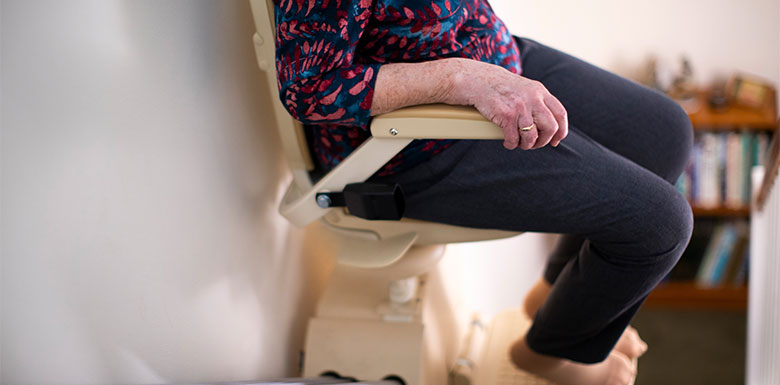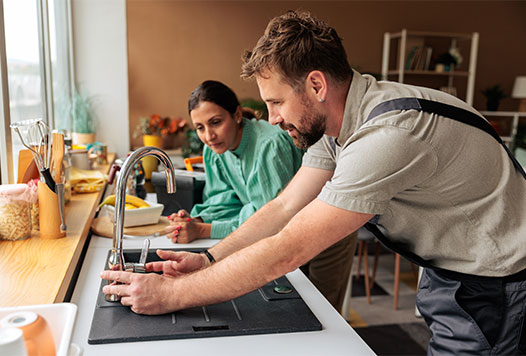Working in the mobility sector - what you need to know
 In this article
In this article
Thanks to improvements in healthcare and living standards, many of us can now expect to live into our eighties and beyond. The number of older people in the UK is also continuing to grow. There are 11 million over-65s in England alone and this is expected to rise by more than one million in the next five years. The number of people over 85 is increasing too.
This means more and more people will need help to live independently, leading to a growing demand for what the mobility sector offers. This includes home adaptations such as fitting stairlifts, accessible bathrooms and grab rails, and products such as riser recliner chairs, walking aids and mobility scooters.
If you’re thinking about starting a business in the mobility sector or are already up and running, here are some of the most important aspects you need to be aware of. We’ve also spoken to two established mobility businesses that are Which? Trusted Traders to ask for their advice on how to be successful in the industry.
Legal issues
Health and safety is always important for a business but your customers will be more vulnerable than most so it’s vital to make sure you minimise any risks that could result from your business’s activities. As an employer you’re legally required to keep your employees and others, including your customers, safe and put measures in place to protect them.
Stuart Clark, director of operations at EA Mobility, which specialises in bathrooms for people with mobility needs, says the company uses a specialist provider of health and safety assessments – CHAS – to keep it on track with this.
If you’ll be making adaptations to people’s homes it’s also important to be aware of building regulations and the Approved Documents within them that provide guidance on how to comply – in particular Part M on the use and access of buildings by disabled people, Part F, which deals with ventilation, and Part P covering electrical safety. Visit the Planning Portal to find out more.
Staff
Having the right staff is the cornerstone of any business and it’s especially important when you’re dealing with vulnerable people at what is likely to be a challenging time in their lives, so finding the right people to work for you should be a top priority.
‘You are normally having to deal with elderly or disabled people, which requires the right type of person with the right set of skills,’ points out owner of Stairlift Solutions NI, Michael Wallace.
Focusing on the customer is essential. ‘As they are normally elderly or disabled, they require extra care, not just initially but throughout the whole experience, including during the after sales care,’ he adds.
Stuart Clark believes that having dedicated staff who really understand the customer and know why they want to work in the sector is key. ‘Our team get job satisfaction from assisting and aiding people with altering homes to enable better mobility access – it can be quite humbling,’ he says.
‘Swapping a standard bathroom for an adapted one changes the lives of people and allows them to clean in a safe and hygienic manner. If there’s no real understanding of the needs of the client, they are just another plumber or builder.’
All EA Mobility staff are also DBS (Disclosure and Barring Service) checked to give customers peace of mind. This allows an employer to check a potential employee’s criminal record to determine their suitability to work for them. This is particularly important if they’re going to be dealing with vulnerable people.
Suppliers
As a seller or installer of mobility products, you’ll be reliant on suppliers and other service providers, so choosing the right ones will go a long way towards helping your business run smoothly, operate to a high standard and give your customers the personalised service they need.
‘You want ones that have a broad range of quality products and offer a smooth supply chain but, just as much, that are also quick with communication and offer good customer service and support,’ advises Michael Wallace.
New initiatives
It’s worth being aware of any new initiatives that might help your mobility business. One such initiative is from charity Driving Mobility, which is supported by the Department for Transport in England.
Driving Mobility has driving and mobility assessment centres across the UK to help disabled and older people drive safely to stay independent. This summer it launched a scheme to provide training for mobility scooter and powered wheelchair retailers so they can successfully assess their customers’ needs, provide them with the right products and promote safe driving.
You could even consider setting up your own initiative to enhance what you can offer your customers, such as teaming up with other retailers that provide complementary products and services. EA Mobility and Stairlift Solutions NI have done just that as their customers often need both an accessible bathroom and a stairlift.
‘We met Michael Wallace from Stairlift Solutions at a professional exhibition in early 2023 and realised there were many similarities, such as the type of clients we work with and their specific individual needs,’ explains Stuart Clark.
Stairlift Solutions later launched its new showroom, which received coverage in the trade press. ‘Soon after, EA Mobility’s managing director Kevin Carvell contacted me directly about partnering for mobility bathrooms,’ Michael Wallace continues.
‘This was something I was very keen on as we weren’t able to offer anything like that for our customers here in Northern Ireland, so we agreed to build a demo mobility bathroom in our new showroom. This means people with disabilities who struggle in the bathroom can see and even try out some of their products and services in our showroom.
‘I like the fact that EA Mobility specialise in mobility bathrooms and have been doing so for years. Plus, as fellow Which? Trusted Traders, I knew they were a company that both we and our customers could really rely on.’




